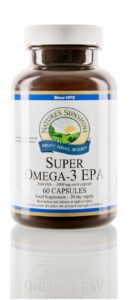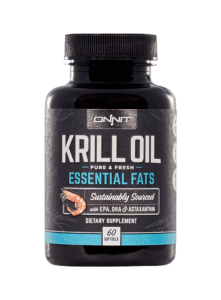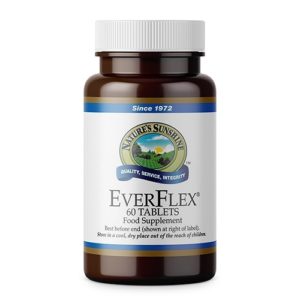Further to my recent post on what vitamins and minerals Arthritis Research UK recommend persons with arthritis need, I’d now like to share their foods and supplements recommendations.
This complements a previous post where I shared Authority Nutrition’s 10 Best Foods to Eat If You Have Arthritis, and there is a little overlap, namely with recommending eating higher dose of fish oil.
Research has shown that some foods and food supplements really can help with arthritis, although the effects are fairly specific to the type of arthritis you have. Arthritis Research UK has recently funded a grant into a study looking at whether a compound found in broccoli can slow the progression of osteoarthritis, for example.
You may find it helpful to talk your dietary needs through with a nutritionist. You can find a nutritionist in your area at the Nutritionist Resource website.
Omega-3 fatty acids for inflammatory arthritis

Omega-3 (also called ‘n-3’) polyunsaturated fatty acids have been shown to help some people with inflammatory types of arthritis such as rheumatoid arthritis, reactive arthritis, psoriatic arthritis and ankylosing spondylitis. Recent research shows they can help even if you’re also taking strong disease-modifying anti-rheumatic drugs (DMARDs) such as methotrexate.
What are fatty acids?
Our digestive system breaks down the oils and fats we eat into fatty acids. But other fatty acids cannot be produced in the body and must be obtained from food – these are called essential fatty acids (EFAs). These polyunsaturated fatty acids are divided into two main groups, omega-3 and omega-6.
Omega-3 fatty acids exist in two forms:
- long-chain forms (DHA, EPA) are found in higher levels in oily fish, e.g. pilchards, sardines, mackerel, salmon.
- short-chain forms (ALA) are found in rapeseed oil, flaxseed oil and walnuts.
Omega-6 fatty acids are found in sunflower and corn oils.

The body uses both omega-3 and omega-6 fatty acids to make chemicals called prostaglandins and leukotrienes. The right balance of these helps to control inflammation, and EPA and DHA promote the anti-inflammatory chemicals. Too much omega-6 can increase inflammation in the body but omega-3 fatty acids, especially the long-chain forms EPA and DHA, are thought to be of use in inflammatory arthritis. It’s possible that the short-chain forms may be converted within the body into the long-chain forms that benefit arthritis. However, it’s not yet clear whether these are as useful as the long-chain omega-3 fatty acids found in fish oil.
How do I increase my intake of fatty acids?
Research suggests you need at least 2.7 g (2,700 mg) per day of the long-chain omega-3 fatty acids EPA and DHA. In the UK, dietary guidelines recommend eating two portions of fish a week, including one oily. This works out at about 0.45 g per day of omega-3 fatty acids, so you may want to take a supplement to reach the full amount.
Fish oils act quite slowly so we recommend that you give them at least 3 months’ trial.
Our complementary and alternative medicines report has given fish body oil a score of 5 out of 5 for effectiveness for rheumatoid arthritis, but fish liver oil has only been given a 1 out of 5 for effectiveness in osteoarthritis. We don’t have enough evidence to give a score for fish liver oil for rheumatoid arthritis or fish body oil for osteoarthritis.
Possible side-effects of omega-3 fatty acids
Some people may have mild stomach upsets and diarrhoea from taking high doses of fish oils. If this happens, try taking the supplement with food and/or splitting the total dose into two or three smaller doses per day. If this doesn’t work, try a lower dose, eating more oily fish or a combination of both.
Recently, there have been concerns about a possible link between high levels of omega-3 polyunsaturated fatty acids and prostate cancer. If you’re male and are considering taking high-dose fish oil, you should check with your doctor first.

Caution with fish liver oils
It’s important not to confuse fish body oil with fish liver oil (e.g. cod liver oil and halibut liver oil). Fish liver oils contain omega-3 polyunsaturated fatty acids as well as vitamin D (which helps the body to absorb calcium) and vitamin A.
But it’s dangerous to take fish liver oils in the large doses recommended for arthritis because of the risk of overdosing with vitamin A. This is particularly important for pregnant women, or women who might become pregnant, because vitamin A can harm the unborn baby.
If you’re pregnant, or could become pregnant, you should not take fish liver oils or vitamin A supplements at all. You should only use vitamins designed for pregnancy to make sure you don’t take excess vitamin A.
Adults shouldn’t take more than 3,000 micrograms (µg) of vitamin A per day. If you eat liver, bear in mind that this also contains a lot of vitamin A and will need to be counted as part of your daily intake of vitamin A.
If you want to increase your intake of omega-3 fatty acids, we recommend taking pure fish body oil rather than fish liver oil.
Glucosamine for osteoarthritis

Many people with osteoarthritis try glucosamine, sometimes combined with chondroitin. Joint cartilage normally contains glucosamine and chondroitin compounds, and it’s thought that taking supplements of these natural ingredients may help to improve the health of damaged cartilage.
Research has produced some mixed results but suggests that glucosamine sulphate is more likely to be helpful than glucosamine hydrochloride. If you’re thinking of trying glucosamine we suggest taking 1,500 mg per day of glucosamine sulphate. If you notice an improvement in your joint pain after 3 months you may wish to continue with them. There doesn’t seem to be much extra benefit in taking glucosamine combined with chondroitin.
Glucosamine is available from chemists, health food shops or on the internet. You should avoid internet sites from non-UK organisations, as international safety regulations for supplements can vary.
Formulated to help maintain joint mobility, EverFlex® provides important nutrients which are the building blocks for healthy cartilage in joints. Cartilage is the ‘shock absorber’ for the joints, protecting bone from wear and tear.
Possible side-effects of glucosamine
You should bear in mind the following:
- There’s some evidence that glucosamine may increase the level of sugar in the blood, so if you have diabetes be sure to check your blood sugar and talk to your doctor if your readings seem to be higher.
- If you’re taking blood-thinning (anti-coagulants) such as aspirin or warfarin, your blood-thinning control may be affected, so make sure you have your regular blood checks and again discuss this with your doctor.
- Glucosamine is often made from shellfish. If you’re allergic to shellfish make sure you take a vegetarian or shellfish-free variety.
Well, there you have it. Some nutrition ideas worth considering if you have osteo- or rheumatoid arthritis, or simply want to protect your joints.
Enjoy!
Scott


.png)